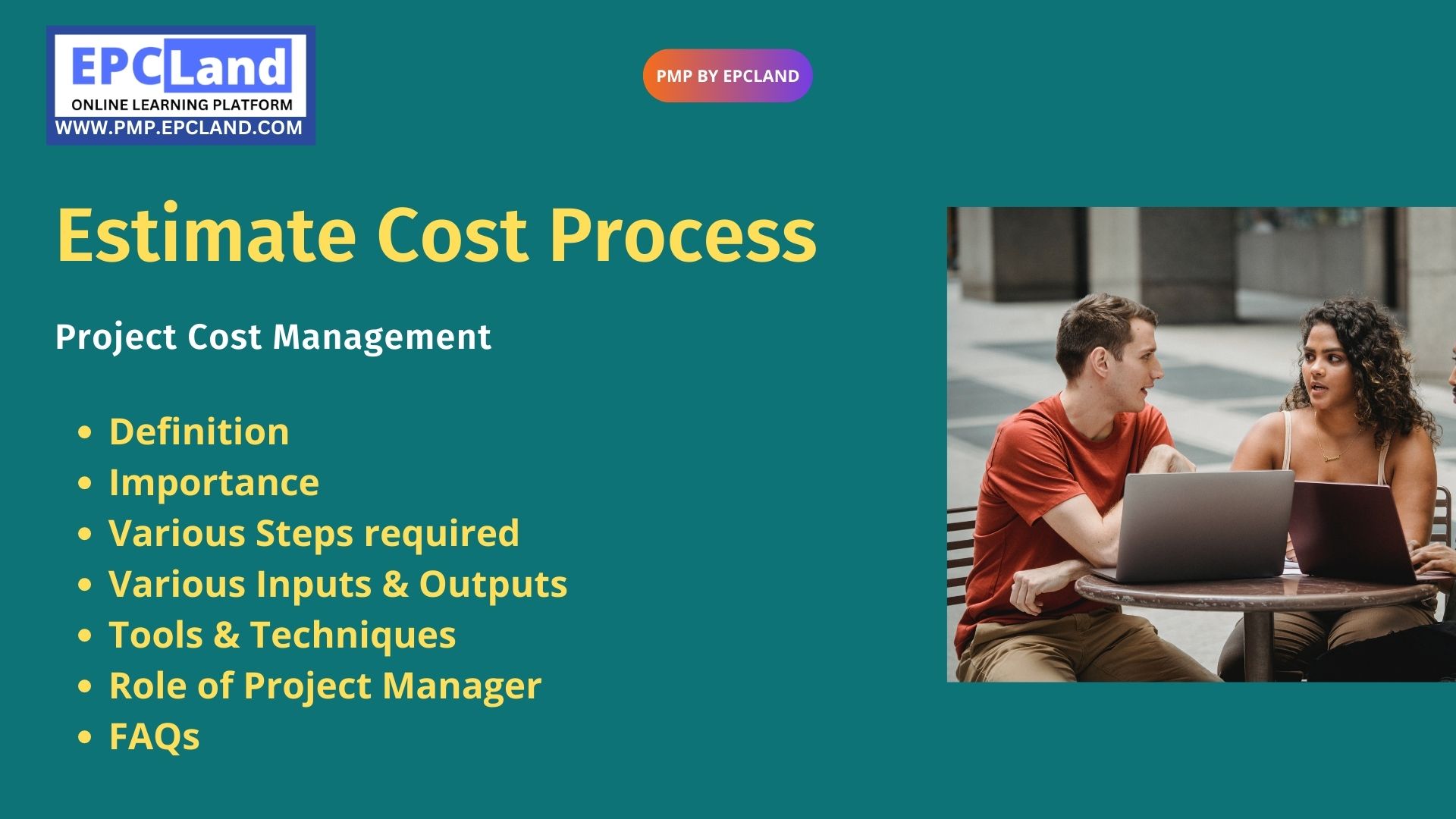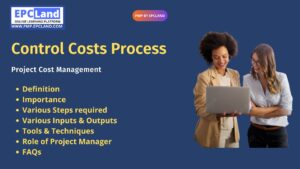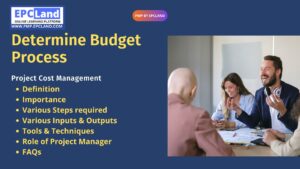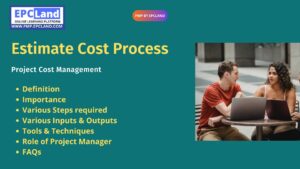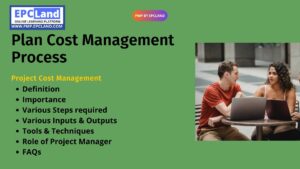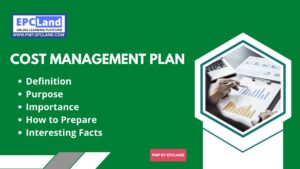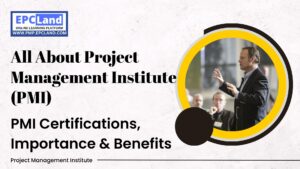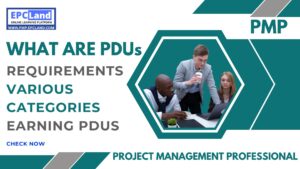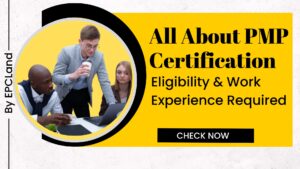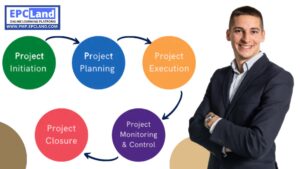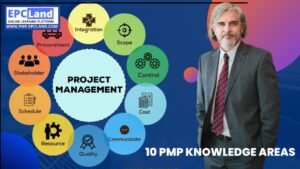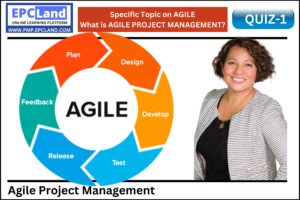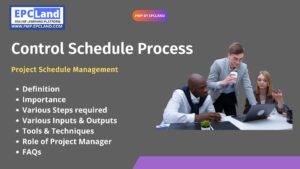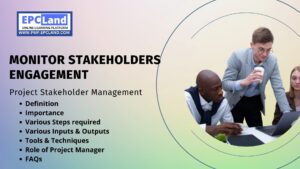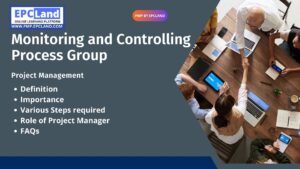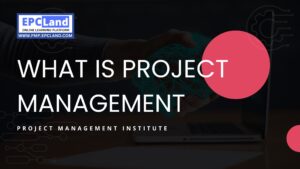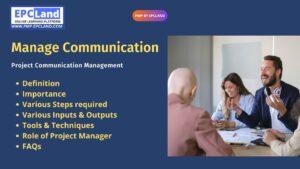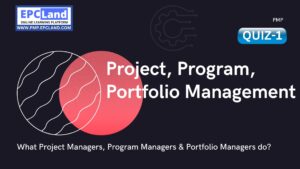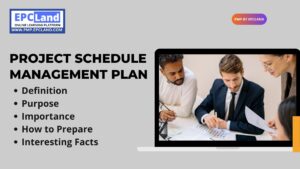Project cost management is a critical aspect of successful project delivery. A key component of this process is cost estimation, which involves forecasting the costs of all resources required to complete the project. The estimate cost process requires careful planning, accurate data collection, and a comprehensive understanding of all project costs, including labor, materials, equipment, and overhead expenses. A well-executed cost estimate sets the foundation for the project budget and provides the project team with a roadmap for managing project finances. However, cost estimation can be a complex and time-consuming process, and it is important to have a clear understanding of the best practices and techniques for achieving accurate and reliable estimates. In this guide, we will provide an overview of the estimate cost process in project cost management, and offer practical tips and best practices for achieving success in your project budgeting efforts.
What is the Importance of the “Estimate Cost Process” in Project Cost Management
The estimate cost process is important in project cost management because it:
- Provides a basis for project budget: A well-executed cost estimate is the foundation for a successful project budget and helps to ensure that the project stays within its financial constraints.
- Supports decision-making: Accurate cost estimates provide important information for decision-makers, who need to know the costs of different project options in order to make informed choices.
- Improves project planning: A comprehensive estimate of project costs helps project managers to plan more effectively, identify potential cost savings and allocate resources more efficiently.
- Facilitates risk management: Cost estimates also play a crucial role in identifying and managing project risks, as they help to identify potential cost overruns and areas where contingency plans may be necessary.
- Increases stakeholder confidence: Accurate cost estimates help to increase the confidence of stakeholders in the project, as they demonstrate a solid understanding of the project’s financial requirements.
Attempt Quiz-1 on Estimate Cost Process
What are the Various Steps required in the “Estimate Cost Process” in Project Cost Management
The steps in the estimate cost process in project cost management are:
- Define project scope: Clearly defining the project scope is crucial for ensuring that all project costs are accounted for in the cost estimate.
- Gather cost information: Collect detailed information about the cost of materials, labor, equipment, and overhead expenses, taking into account any special requirements or constraints.
- Develop cost estimating techniques: Choose the most appropriate cost estimating techniques for your project, such as bottom-up estimating, top-down estimating, or analogical estimating.
- Create work breakdown structure (WBS): Breaking the project into smaller, manageable components, such as tasks or activities, helps to ensure that all costs are accounted for in the cost estimate.
- Develop resource requirements: Identify the resources required to complete each task or activity, including materials, labor, and equipment, and estimate their costs.
- Calculate indirect costs: Include indirect costs, such as overhead expenses, in the cost estimate.
- Review and validate the estimate: Review the cost estimate to ensure that it is accurate and complete, and validate the estimate by comparing it to previous project costs or market data.
- Refine and update the estimate: Regularly update and refine the cost estimate as the project progresses, to ensure that it remains accurate and relevant.
What are various Tools & Techniques used for the “Estimate Cost Process” in Project Cost Management
The tools and techniques used for the estimate cost process in project cost management are:
- Expert judgment: Seek the input of experienced individuals who have a good understanding of the project costs, including project managers, subject matter experts and industry professionals.
- Analogous estimating: Use historical data from previous similar projects to estimate the costs of the current project.
- Parametric estimating: Use statistical analysis to estimate costs based on a set of parameters, such as the number of units, the size of the project or the cost per unit.
- Bottom-up estimating: Detailed analysis of individual tasks or activities to estimate their costs, and then aggregating these costs to estimate the total project cost.
- Cost of quality: Estimate the cost of quality-related activities, such as inspection and testing, to ensure that the project is delivered to the required quality standards.
- Three-point estimating: Develop a range of estimates based on best-case, most-likely, and worst-case scenarios, to account for uncertainty in the cost estimate.
- Reserve analysis: Identify and allocate contingency reserves, such as management reserves or contingency reserves, to manage project risks and uncertainties.
- Cost estimating software: Use specialized cost estimating software to automate the cost estimating process and improve accuracy.
What are various Inputs required for the “Estimate Cost Process” in Project Cost Management
The inputs required for the estimate cost process in project cost management are:
- Project scope statement: Detailed description of the project scope, including project goals, deliverables, and constraints.
- Work breakdown structure (WBS): Breakdown of the project into smaller, manageable components, such as tasks or activities, to support cost estimating and budgeting.
- Historical information: Data and lessons learned from previous similar projects, to support analogical estimating and improve the accuracy of cost estimates.
- Resource requirements: Information about the resources required to complete each task or activity, including materials, labor, and equipment.
- Activity resource requirements: Information about the specific resources required for each activity, including quantity, type, and duration.
- Activity duration estimates: Estimates of the duration required to complete each activity, including the duration of each task, the time required for setup, and the time required for cleanup.
- Cost of quality data: Information about the cost of quality-related activities, such as inspection and testing, to ensure that the project is delivered to the required quality standards.
- Enterprise environmental factors: Information about the organizational and external factors that may impact the project costs, including regulatory requirements, economic conditions, and availability of resources.
- Organizational process assets: Information about the policies, procedures, and processes used by the organization to manage projects, including cost estimating and budgeting processes.
What are various Outputs required for the “Estimate Cost Process” in Project Cost Management
The outputs of the estimate cost process in project cost management are:
- Cost estimates: Detailed estimates of the costs associated with each task or activity, and the total project cost.
- Basis of estimates: Documentation explaining the assumptions, methodologies, and data sources used to develop the cost estimates.
- Cost management plan: Detailed plan for managing project costs, including how the project budget will be established and managed, how risks will be identified and managed, and how the project will be monitored and controlled.
- Budget: A formal document that defines the total project budget, including the cost estimates for each task or activity, and any contingency reserves.
- Project funding requirements: Identification of the funding requirements for the project, including the amount of funding required, the sources of funding, and the payment schedule.
- Project documents updates: Updating of project management plans and other project documents, such as the scope statement, risk management plan, and communication plan, to reflect the latest cost estimates and budget.
- Work performance information: Information about the actual costs incurred during the project, including actual labor and material costs, to support ongoing project cost management and control.
What is Role of the Project Manager in the “Estimate Cost Process” in Project Cost Management
The role of the project manager in the estimate cost process in project cost management is critical. The project manager is responsible for:
- Facilitating the development of cost estimates: This involves coordinating with project stakeholders, including the project team, subject matter experts, and stakeholders, to gather the information needed to develop accurate and reliable cost estimates.
- Ensuring that the right tools and techniques are used: The project manager must ensure that the right tools and techniques are used to develop cost estimates, such as analogical estimating, parametric estimating, or bottom-up estimating.
- Monitoring and controlling project costs: The project manager must continuously monitor and control project costs, comparing actual costs against the budget, and taking action as needed to control project costs.
- Communicating cost information: The project manager must communicate cost information to stakeholders, including the project team, sponsors, and stakeholders, ensuring that everyone has the information they need to understand the project’s financial status and make informed decisions.
- Managing risk: The project manager must identify, assess, and manage project risks, including cost risks, and ensure that contingency reserves are in place to cover potential cost overruns.
- Continuously improving the cost-estimating process: The project manager must continuously evaluate the cost-estimating process and make improvements as needed to ensure that cost estimates are accurate and reliable and that the project is managed effectively.
Attempt Quiz-1 on Estimate Cost Process
Final take away on “Estimate Cost Process” in Project Cost Management
The estimate cost process in project cost management is a critical aspect of project management, enabling project managers to develop accurate and reliable cost estimates, manage project costs effectively, and control the project budget. With the right tools, techniques, and practices, the project manager can ensure that the estimate cost process is executed effectively and that the project is delivered on time and within budget. A successful estimate cost process requires collaboration, communication, and continuous improvement, and the project manager must be equipped with the knowledge and skills necessary to successfully manage the project budget and control project costs.
FAQs on “Estimate Cost Process” in Project Cost Management
- What is the estimate cost process in project cost management?
- The estimate cost process is a set of activities used to determine the costs of a project, including the costs of labor, materials, and equipment. It involves developing a detailed cost estimate for each task or activity in the project, and aggregating these estimates to determine the total project cost.
- Why is the estimate cost process important?
- The estimate cost process is important because it provides project managers with the information they need to manage project costs effectively, control the project budget, and make informed decisions about project resources and funding.
- What tools and techniques are used in the estimate cost process?
- Common tools and techniques used in the estimate cost process include analogical estimating, parametric estimating, bottom-up estimating, and expert judgment.
- Who is responsible for the estimate cost process?
- The project manager is responsible for facilitating the estimate cost process, coordinating with stakeholders to gather the information needed to develop cost estimates, and ensuring that the right tools and techniques are used.
- What are the outputs of the estimate cost process?
- The outputs of the estimate cost process include cost estimates, basis of estimates, cost management plan, budget, project funding requirements, project document updates, and work performance information.
- How does the project manager monitor and control project costs?
- The project manager monitors and controls project costs by comparing actual costs against the budget, taking action as needed to control project costs, and continuously monitoring project performance to identify and address any cost issues.
- What are some best practices for the estimate cost process?
- Some best practices for the estimate cost process include involving the right stakeholders, using the right tools and techniques, continually improving the cost estimating process, and regularly communicating cost information to stakeholders.
